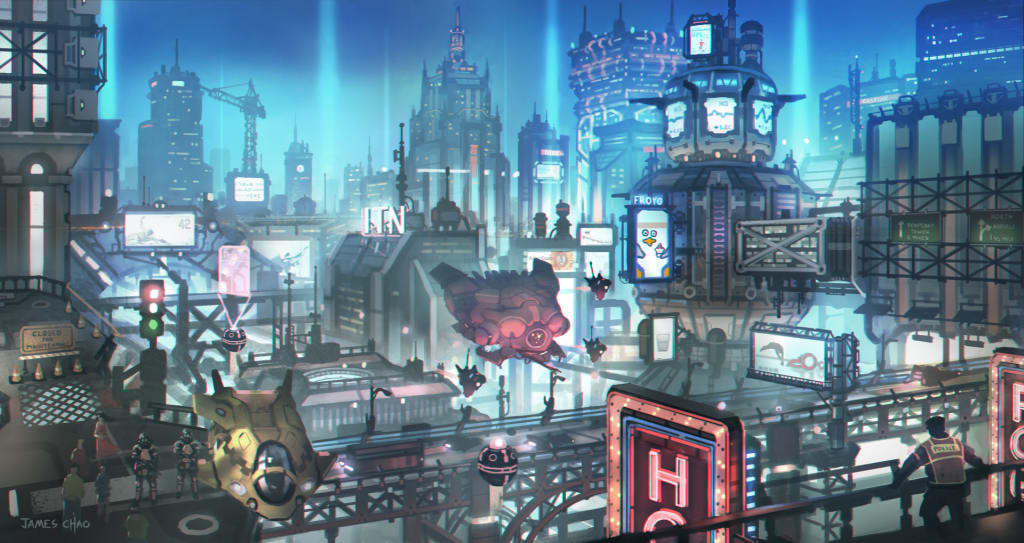
My parents never fail to remind me of how different the world is now compared to when they were children. With advancements from bulky bricks and wired headphones to weightless screens and bluetooth earbuds, it's safe to say technology has progressed at an exponential rate. I mean, just take a look at what the internet looked like in 2000 compared to 2021. No one could have possibly guessed we’d be selling pictures of NFT toads at higher costs than some houses. With the passing of time, the evolution of technology will only move forward. If all goes according to plan—and climate change doesn’t kill us too soon—I hope to, one day, have a family. There is already a huge difference between my mother’s day to day life compared to my grandmas, so it's not a stretch to assume motherhood will be an entirely different experience for me. Although it’s pretty impossible to predict what my future will look like, I do have an idea of how my morning routine will play out in the year 2050.
8:00AM: My alarm clock hasn’t changed much from when I was a child; I still get woken up by the clock app on my iPhone. There is one difference though; I am now able to put my phone underneath my pillow rather than outside my room. The electrical waves that used to be a topic of concern—due to the fact that people believed the electromagnetic waves would cause brain tumours—have now been mediated to cause next to no effect on bodily health. This is good for me because—as a heavy sleeper—it’s a lot easier to wake up when my pillow is screaming into my ear.
8:01AM to 8:15AM: I used to start my mornings scrolling through my socials to get updated on all the current events that occurred while I was sleeping. Now—ever since the Metaverse evolved from an internet meme to reality—the first thing I do is reach for my VR goggles. As I wait for my husband to log on with his, I set myself to be projected to the BBC News channel. Instead of watching the journalists report from a certain area via our TV’s, we now can be projected directly to the site of action. This helps to really immerse us into the seriousness of global issues. Ever since this update has occurred, there has been a significant increase in overall global donations and humanitarian aid to underdeveloped countries facing social or political turmoil. This is because the “immerse effect” essentially places us in the shoes of those facing adversities, so many of us have—in turn—become more empathetic. When nothing seems too important, I tend to log off pretty fast. The thing that sucks about this whole VR thing is that people who are light sensitive—like me—can suffer from migraines if we’re in the Metaverse for too long.
8:16AM: I finally hop out and dismember my side of the bed since my husband’s still in the verse. Even the richest people have pretty small houses because of the population boom and—therefore—lack of space. Regardless, our furniture has been developed to adapt to this dilemma. When a piece isn’t being used it’s either pulled apart and stored or utilized as something else. I hop into the bathroom and start waking myself up. I rinse my face with cold water and brush my teeth with my electric toothbrush. These were pretty expensive at one point, but now they’re the only thing available on the shelves. Before I start my makeup, I switch on my mirror. I love this thing; it scans my face, skin tone, blemishes, and bone structure in order to pick out the makeup look that has the most potential. I can also speak to it and let it know my plans for the day so it can further determine what look I should go for. It sort of functions the same way SnapChat filters used to work. It projects the look onto my face so I can trace it with my real products to match it.
8:30AM: Once I’m finished making myself look alive, I quickly throw on my goggles again so I can get my husband out of the Metaverse. When you don’t get headaches—like him—you can spend hours in there without even realizing it. I find my kids in there too so I boot them out as well. I try to get my family to maintain a balanced ratio of hours spent in the Metaverse vs the real world; this doesn’t work out everyday, but I try my best.
8:45AM: While the rest of my family is getting ready, I begin to prepare breakfast. I never planned to be a housewife so I never learned to cook but thank god technology has developed far enough that I don’t have to. We have an omelette maker—Omelette Bot 2000—that's incredibly easy to use. You fill the chamber with the amount of eggs you want cooked along with any vegetables or spices and—once you’ve chosen a recipe on the touch screen—it closes up and gets to work. Coffee machines and toasters are the same as they’ve always been—except that they all have touch screens. Also, they function around 100 times faster than the ones from 2021. Before I know it, I have 4 meals ready in under 5 minutes.
8:48AM: As I watch my family scarf down their plates, I think about how food actually is. When I was younger, I was always under the impression our society would move away from food all together and consume our nutrients through pills or powders. Over time though, I realised that sharing a meal and enjoying our food is something we—simply—cannot replace. No matter how advanced technology gets, we cannot ignore the fact that we are social beings that need to communicate with one another.
9:00AM: Once we’re all done, I remind everyone to put their plates in the dishwasher belt before they get up. This thing cleans and dries your dishes in 5 seconds tops, making clean up incredibly easy. I never clean, like ever. We have a robot that vacuums our floors, the tables have built-in wipers that tidy up after us, and our central air purification system prevents dust from ever building up. There isn’t enough space to just throw things on the floor, so the hardwood never gets crowded.
9:30AM: By this time, everyone is online and either in class or working. Ever since the 2020 Pandemic, the idea of a 9-5 office workday has become an outdated concept. My husband’s company makes way more money now than when his Father was in charge because his employees now work remotely. My children love to learn online because they tend to be more focused when they study at their own pace. Nonetheless, I still make sure they go to school for basketball practice and art class because I’m a firm believer in a healthy social life. As for me, I’m a global health professor at Columbia University. I don’t live in New York—since most of my students are international anyways—so I log onto Zoom and begin my lecture on Women’s Reproductive Violence. Online learning is different from what it was in 2020. Now, with high speed internet being available across the globe—thanks to Elon Musk’s Starlink—people from the tiniest, most remote villages are able to pursue an ivy league education anywhere in the world. Before, it was common that the biggest brains in underdeveloped countries would move away to big cities in order to study. However, this came with issues. While all the global hubs of the world were being pumped with more and more intelligent people, there became a huge disparity between these places and underdeveloped locations in regards to technological advancements. Additionally, certain intelligence would often be diluted or under appreciated because of the mass concentration existing in one area. Now, with these people being able to study in their homes, they can utilize their learnings to better their local communities rather than leaving them in the dust. My favourite part of my job is being able to project—through the Metaverse—into my students’ homes and villages while giving them direct hands on advice as to how to handle certain situations and adversities—all in real time!
There’s no doubt that my personal life will change; my current daily routine will soon become unrecognizable and “old-fashioned”. However, technology’s biggest impact on us will be displayed through our increased and enhanced connection to one another. The global inequities that exist currently have the potential to be eradicated if—and only if—technological advancements are used in a correct and ethical way. My hope for the future is to be at the forefront of this advancement and to ensure new technologies are utilized in this manner. Global equality is possible if the right people dedicate themselves to allowing it to happen. I plan to be this person.
About the Creator
Ayla Ahmed
If you like a little bit of everything—but mostly complaints, advice, or sad fiction—then don't hesitate to read my stuff.






Comments
There are no comments for this story
Be the first to respond and start the conversation.